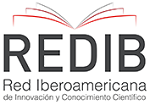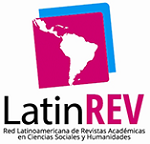Formación pedagogica universitaria e impacto socioeconomico en egresados: un estudio econométrico
DOI:
https://doi.org/10.15649/2346030X.4524Palabras clave:
desarrollo económico y social, formación profesional superior, innovación pedagógicaResumen
Este estudio investiga el impacto de la formación pedagógica en el programa de Administración de Empresas de la Universidad de Los Andes Táchira, y su relación con el desarrollo socioeconómico de sus egresados. Utilizando un enfoque metodológico mixto, se llevaron a cabo encuestas y entrevistas con egresados, profesores y empleadores. Además, se aplicó un modelo econométrico Logit Multinomial para analizar cómo la formación pedagógica influye en las competencias profesionales y oportunidades laborales de los graduados. Los resultados revelaron que aquellos egresados que recibieron formación pedagógica reportan mayores niveles de satisfacción laboral y mejores ingresos, destacando especialmente el impacto positivo en las mujeres, quienes experimentan una mayor movilidad social. Estos hallazgos subrayan la necesidad de integrar una sólida formación pedagógica en los programas académicos, no solo para mejorar las habilidades profesionales, sino también para potenciar el impacto socioeconómico de los graduados en el contexto venezolano. Este estudio contribuye al entendimiento de cómo la educación puede ser un motor de cambio social y económico en épocas de crisis.
Referencias
R. Eslava-Zapata, E. Chacón-Guerrero y R. Esteban-Montilla, «Emerging Technologies in Education: A Bibliometric Analysis of Artificial Intelligence and its Applications in Health Sciences,» Seminars in Medical Writing and Education, vol. 3, nº 49, pp. 1-11, 2024.
D. C. Andrade-Girón, W. J. Marín-Rodriguez, M. Zúñiga-Rojas, E. T. Susanibar-Ramirez y I. P. Calvo-Rivera, «Quality Management System for Higher Education: A Systematic Review,» Data and Metadata, vol. 2, p. 100, 2023.
L. Akber-Cassum y S. S. Fatima, «E-gaming: an active learning pedagogy for engaging learners in a private university in Karachi, Pakistan,» Journal of the Pakistan Medical Association, vol. 74, nº 7, p. 1321–1324, 2024.
D. V. Kornienko y S. V. Mishina, «Research of the Effectiveness of Various Strategies for the Formation of Lean Competencies of Students,» Journal of Higher Education Theory and Practice, vol. 23, nº 1, pp. 23-29, 2023.
K. O. Meteshkin, O. I. Morozova y O. Y. Pomortseva, «The results of department educational processes reengineering in dual and digital education concepts,» Radioelectronic and Computer Systems, vol. 1, pp. 92-100, 2021.
C. C. Donayre-Bohabot, L. I. Palacios-Serna y J. D. Dávila-Cisneros, «Intrinsic motivation according to developmental stages in post-pandemic students,» Salud, Ciencia Y Tecnología - Serie De Conferencias, vol. 3, p. 706, 2024.
K. Kuromiya, «Econometric analysis of the employment of persons with disabilities in prefectural boards of education,» International Journal of Educational and Psychological Sciences, vol. 16, p. 423–441, 2022.
S. M. Gutiérrez-Ochoa y C. H. Díaz-Torres, «La educación virtual en tiempos de pandemia,» Revista Gestión y Desarrollo Libre, vol. 6, nº 11, pp. 131-149, 2021.
E. Gregory, L. Murtagh y K. Beswick, «Perspectives from university tutors on the use of collaborative enquiry-based approaches to develop pre-service teachers' pedagogies and understanding of inclusive practice,» The Curriculum Journal, vol. 35, p. 524–531, 2024.
R. Eslava-Zapata y S. Quiroz-Leal, «Profile of the Motivated Teacher: Empirical study with teachers who work with students who have identified disabilities,» Salud, Ciencia Y Tecnología, vol. 4, nº 937, 2024.
E. M. Palacios-Zumba, M. G. Cóndor-Chicaiza, M. C. Peñaherrera-Cueva, L. M. Bustillos-Tapia, M. J. Toalombo-Tipán, A. R. Simba Pozo y L. C. López Orozco, «Competency-based Curriculum: A New Approach to Curricular Change,» Salud, Ciencia Y Tecnología - Serie De Conferencias, vol. 3, p. 779, 2024.
J. Krishnakumar y R. Nogales, «Education, skills and a good job: A multidimensional econometric analysis,» World Development, vol. 128, p. 104842, 2020.
W. Y.-J. Ho, «Digital multimodal composing pedagogy in a university writing course,» ELT Journal, vol. 78, nº 3, p. 326–335, 2024.
J. Piaget, The development of thought: Equilibration of cognitive structures, Oxford: Basil Blackwell, 1977.
L. S. Vygotsky, Mind in society: The development of higher psychological processes, United States: Harvard University Press, 1978.
D. A. Kolb, Experiential learning: Experience as the source of learning and development, United States: Prentice-Hall, 1984.
B. S. Vargas-Ávila, D. N. Villa-Celis, C. D. Ortiz-Vargas, K. N. Becerra-Menjura, L. A. Verdugo-Gómez y J. N. Ramírez-Chacón, «Radio educación financiera en zonas rurales de Colombia,» Región Científica, vol. 3, nº 1, p. 2024207, 2024.
R. Eslava-Zapata, V. Sánchez-Castillo y E. Chacón-Guerrero, «Interaction between neuroscience and happiness: assessment from Artificial Intelligence advances,» EAI Endorsed Trans Perv Health Tech, vol. 10, pp. 1-12, 2024.
S. V. Mishina, «Strategies for students’ lean competencies formation in the educational process of the university,» Journal of Physics: Conference Series, vol. 1691, nº 2020, p. 012213, 2020.
J. Delors, Learning: The treasure within, United States : UNESCO, 1996.
F. A. Calderón-Orduz, «Fundamentos Teóricos de Educación 4.0 para la Excelencia Académica en el Ámbito de la Cuarta Revolución Industrial,» Revista Gestión y Desarrollo Libre, vol. 7, nº 13, pp. 1-19, 2022.
S. Tobón, Formación basada en competencias: Pensamiento complejo, diseño curricular y didáctica, México: Ecoe Ediciones, 2006.
R. E. Gómez-Portuguez y E. Ureña-Salazar, «Educación remota de emergencia: desafíos, evaluación y ética en el aprendizaje virtual,» Revista Gestión y Desarrollo Libre, vol. 9, nº 18, pp. 1-17, 2024.
E. A. Hanushek y L. Woessmann, «Do better schools lead to more growth? Cognitive skills, economic outcomes, and causation,» Journal of Economic Growth, vol. 17, nº 4, pp. 267-321, 2012.
L. A. Velásquez-Castro y J. A. Paredes-Águila, «Revisión sistemática sobre los desafíos que enfrenta el desarrollo e integración de las tecnologías digitales en el contexto escolar chileno, desde la docencia,» Región Científica, vol. 3, nº 1, p. 2024226, 2024.
M. Akbar, M. Tariq y G. Shabbir, «Role of gender bias and parental education as determinants of couples’ fertility decisions in pakistan: bayesian econometric analysis,» Economic Computation and Economic Cybernetics Studies and Research, vol. 3, nº 55, p. 171–186, 2021.
Z. Liu, S. Chen, T. Tang, H. Luo y Q. Guan, «How public education investment and advanced human capital structure affect regional innovation: A spatial econometric analysis from the perspective of innovation value chain,» Socio-Economic Planning Sciences, vol. 91, p. 101800, 2024.
J. M. Wooldridge, Introductory econometrics: A modern approach, United States: Cengage Learning, 2015.
R. Carballo, A. Morina y A. Castellano-Beltran, «Learning from faculty members who carry out inclusive pedagogy in Spanish universities: the importance of accessible methodologies and resources,» Journal of University Teaching and Learning Practice, vol. 21, nº 1, 2024.
K. A. Bollen, «Latent variables in psychology and the social sciences,» Annual Review of Psychology, vol. 53, nº 1, pp. 605-634, 2002.
W. H. Greene, Econometric analysis, London: Pearson , 2018.
M. E. M. d. S. Bendor, F. C. Lenzi y A. M. R. Sousa, «Behavior and Entrepreneurial Potential in the light of the Carland Entrepreneurship Index - CEI in the University Student Perspective,» REGEPE Entrepreneurship and Small Business Journal, vol. 9, nº 3, p. 272–302, 2020.
R. Carballo y C. Almudena, «Inclusive Pedagogy at University: Faculty Members’ Motivations,» Sustainability, vol. 16, nº 11, p. 4588, 2024.
V. M. Miranda-Moreno y E. Sandoval-Obando, «La educación expandida en contextos educativos formales e informales,» Región Científica, vol. 3, nº 2, p. 2024321, 2024.
A. C. Cameron y P. K. Trivedi, Microeconometrics: Methods and applications, United Kingdom: Cambridge University Press, 2005.
R. Hernández, C. Fernández y P. Baptista, Metodología de la investigación, México: McGraw-Hill, 2014.
J. W. Creswell, Research design: Qualitative, quantitative, and mixed methods approaches, United States: SAGE Publications, 2014.
R. F. De-Vellis, Scale development: Theory and applications, United States : SAGE Publications, 2016.
J. M. Wooldridge, Econometric analysis of cross section and panel data, United States: MIT Press, 2010.
G. S. Maddala, Limited-dependent and qualitative variables in econometrics, United Kingdom: Cambridge University Press, 1983.
American Psychological Association, Publication manual of the American Psychological Association, United States : American Psychological Association, 2017.
Z. Boussouf, H. Amrani, M. Zerhouni-Khal y F. Daidai, «Artificial Intelligence in Education: a Systematic Literature Review,» Data and Metadata, vol. 3, p. 288, 2024.
A. Alvarado-Acosta, J. Fernández-Saavedra y B. Meneses-Claudio, «Transformation and digital challenges in Peru during the COVID-19 pandemic, in the educational sector between 2020 and 2023: Systematic Review,» Data and Metadata, vol. 3, p. 232, 2024.
L. I. Yancachajlla-Quispe, S. S. Rengifo-Ramírez, M. Farfán-Latorre, E. G. Estrada-Araoz, W. G. Lavilla-Condori y M. L. Lavilla-Condori, «Exploring the relationship between metacognition and motivation in Peruvian basic education students,» Salud, Ciencia Y Tecnología - Serie De Conferencias, vol. 3, p. 658, 2024.
P. Bourdieu y J. C. Passeron, Reproduction in education, society and culture, United States: SAGE Publications, 1977.
P. Freire, Pedagogy of the oppressed, United States : Continuum, 1970.
A. Agresti, Categorical Data Analysis, United States : John Wiley & Sons Ltd, 2003.
C. Ma, H. Wu y X. Li, «Spatial spillover of local general higher education expenditures on sustainable regional economic growth: A spatial econometric analysis,» PLoS ONE, vol. 18, nº 11, p. e0292781, 2023.
J. J. Quintero-Rivera, «Innovación académica para el fortalecimiento de los programas de Contaduría Pública en Colombia,» Región Científica, vol. 3, nº 1, p. 2024211, 2024.
J. Hardman, «Decolonising pedagogy: A critical engagement with debates in the university in South Africa,» Journal of Education, vol. 94, pp. 146-160, 2024.
Y. Alcedo-Salamanca, D. Martínez-Nieto y L. Weky, «Comunidades de aprendizaje, trabajo colaborativo y pensamiento complejo: retos para la transformación de la docencia universitaria en el siglo XXI,» Revista Gestión y Desarrollo Libre, vol. 6, nº 11, pp. 76-106, 2021.
J. A. Santiago-Rivera, «Gestión para innovar la educación geográfica desde el estudio de la comunidad: una opción para formar al ciudadano del siglo XXI,» Revista Gestión y Desarrollo Libre, vol. 8, nº 15, pp. 1-15, 2023.
G. S. Becker, Human capital: A theoretical and empirical analysis, with special reference to education., United States : University of Illinois , 1964.
H. A. Giroux, Teachers as intellectuals: Toward a critical pedagogy of learning, United Kingdom: Bergin & Garvey, 1988.
P. McLaren, «Critical pedagogy: A look at the major concepts,» de A. Darder, M. Baltodano, & R. D. Torres (Eds.), The critical pedagogy reader, United Kingdom, Routledge, 2003, pp. 69-96.
Descargas
Publicado
Cómo citar
Descargas
Número
Sección
Licencia
Derechos de autor 2024 AiBi Revista de Investigación, Administración e Ingeniería

Esta obra está bajo una licencia internacional Creative Commons Atribución 4.0.
La revista ofrece acceso abierto bajo una Licencia Creative Commons Attibution License

Esta obra está bajo una licencia Creative Commons Attribution (CC BY 4.0).









